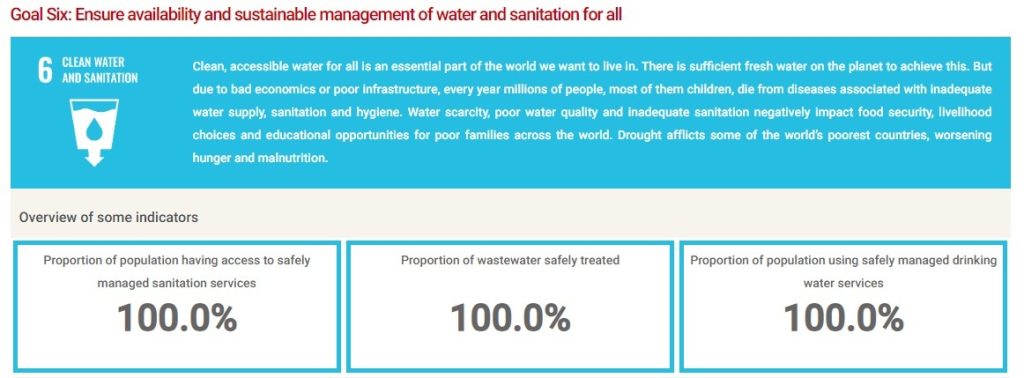SDG 6 - Clean Water and Sanitation
GU is committed to ensuring the availability and sustainable management of water and sanitation for all and actively involved in developing and implementing innovative solutions to address water scarcity and improve sanitation facilities. Through community-driven initiatives like, inclusive water-related programs, and educational workshops highlighting the significance of clean water and sanitation, GU is playing a pivotal role in shaping a more sustainable future for Bahrain while contributing to the realization of SDG 6.
By engaging with the community and addressing the fundamental challenges related to water and sanitation, the university is playing a crucial part in advancing the global goal of ensuring access to clean water and sanitation for all.
National Water Strategy 2030
The Government of Bahrain approved the National Water Strategy 2030 in 2018, in line with the GCC Unified Water Strategy (2016-2035), which aims to ensure the effective management of water resources and provide sustainable water supplies of the required quality for the various economic sectors in order to boost sustainable development. The National Water Strategy relies on three main pillars: promoting coordination among various water-related bodies, following up and monitoring of the implementation of activities, programs, and services and increasing awareness.
Infrastructure Development
The Kingdom has worked to both increase the level of drinkable and clean water supply and enhance its capacity to develop sanitation services and treatment of water. The Al Dur Phase 2 power plant, completed in partnership with the private sector, has the capacity to produce 227 thousand cubic meters of desalinated water per day. The Electricity and Water Authority (EWA) has launched a tender to consult on the Al Dur Phase 3 plant, which will target a desalinated sea water output of 227 thousand cubic meters per day. The water transportation network has also been expanded from 150 kilometers in 2002 to 618 kilometers in 2022. Similarly, the storage capacity was increased from 87 tanks to 164 tanks in 2022. The development of the water supply networks over the years has resulted in reaching a storage capacity of 2.6 million cubic meters that would meet the demand for water, under normal conditions, for over 4 days in the event of a complete shutdown of all plants.
The Water Resources Management Unit
In October 2018, Bahrain was granted approximately USD 2.3 million by the Green Climate Fund for a project entitled “Enhancing climate resilience of the water sector in Bahrain”. The Supreme Council for Environment established the Water Resources Management Unit (WRM), which facilitates four activities under the project: Establishing a knowledge management platform for climate change impacts on Bahrain’s water sector to facilitate improved water demand management, building the institutional capacity of the water resources council to establish and operate a climate resilient integrated water resources management (IWRM) framework in a cross-sectoral manner, promoting water conservation technologies and practices at household and farm level, and producing guidelines for rainwater harvesting and greywater recycling.
Public Awareness
The Kingdom is invested in reducing water consumption through daily monitoring of accounts’ consumption, notifying account holders in the case of any unusual hikes, which may be the result of leaks or over consumption. The Electricity and Water Authority has launched several awareness campaigns to encourage water conservation.
Bahrain efforts for SDG 6:

Last Updated on November 27, 2024 @ 03:01:53 pm
